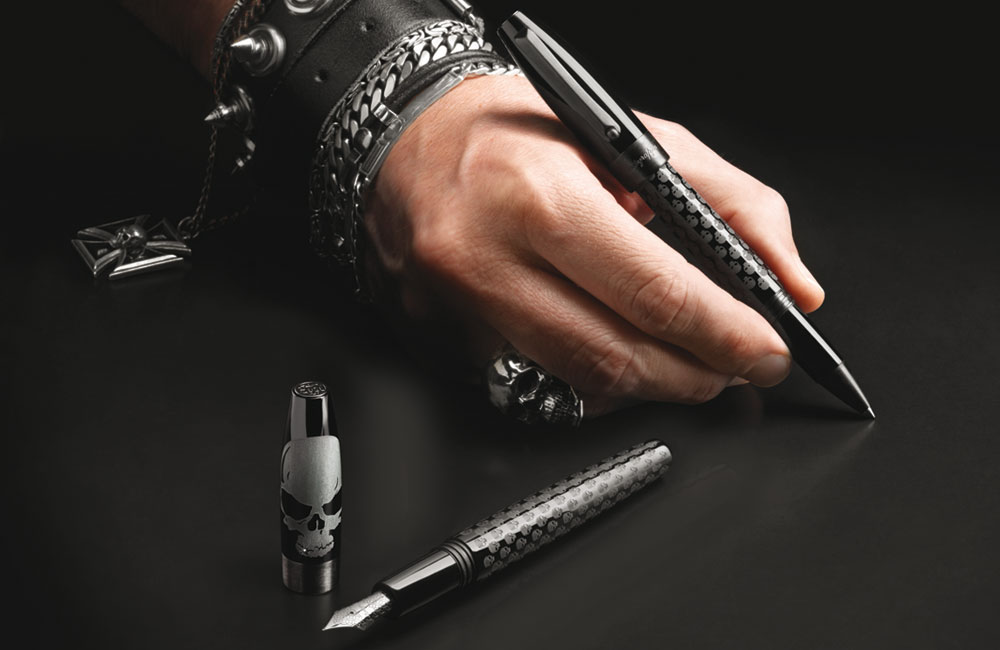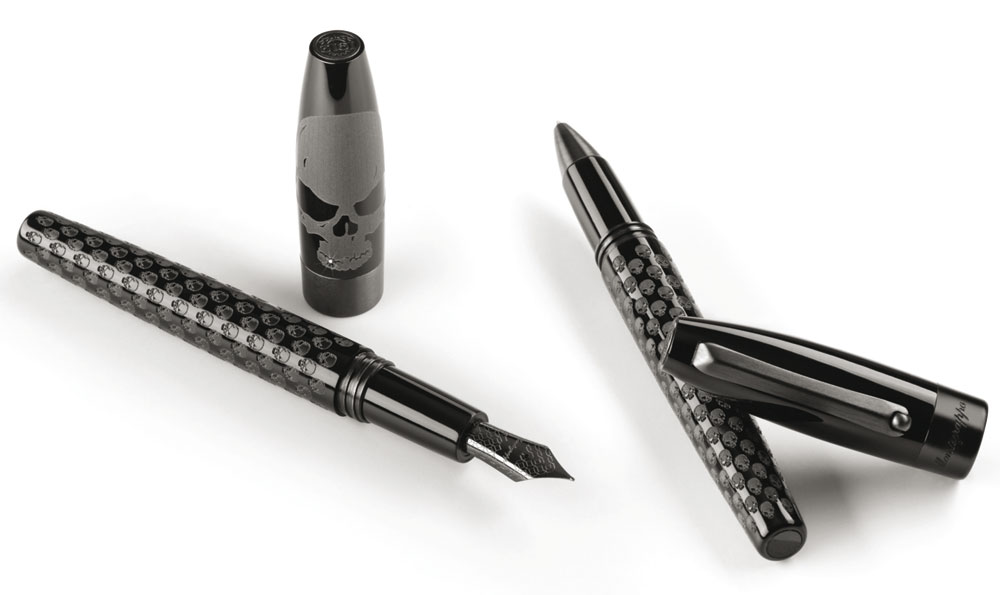 Skull: milky bones against a pitch black background, wild music, pirates, poisons, danger, death – all concepts conveyed to our minds by this symbol today. Nonetheless, since ancient times, the skull has been a prosperous and fortunate symbol, as a reminder of human highest potentials in their most spiritual hues. Montegrappa brought back to light the skull’s ancient meaning and dedicated to it a fountain pen of the Fortuna series: Skull.
Skull: milky bones against a pitch black background, wild music, pirates, poisons, danger, death – all concepts conveyed to our minds by this symbol today. Nonetheless, since ancient times, the skull has been a prosperous and fortunate symbol, as a reminder of human highest potentials in their most spiritual hues. Montegrappa brought back to light the skull’s ancient meaning and dedicated to it a fountain pen of the Fortuna series: Skull.
“You don’t HAVE a soul, you ARE a soul, you HAVE a body.”
– C.S. Lewis (1898 – 1963)
The Skull’s lost meaning
Both Maya in Central America and Etruscan in Europe used to decorate their buildings with skulls. Far from being a death sign, it was instead an auspicious symbol, recalling to human life and hidden potentials. In those cultures it was believed that the human being – a soul featuring a body (not the contrary) – contained within a divine sparkle and consequently owned potentialities going beyond the visible and the corporeal.
In the Middle ages this belief was reinterpreted by philosophers as “memento mori“, from the latin, “remember you are mortal”. The skull, in a nutshell, represented a physical case for the soul – the mind – and while this “case” had a transient nature, the soul was immortal, instead. From here to reincarnation philosophies the step is short. The concept of eternal life of the soul – continuing its trip from a body to another – spreads in cultures all over the world, sinking its roots since the beginning of time.
The skull as a symbol of chance

In this context, philosophers of all times agree upon the fact that thinking of one’s death helps humankind to open their minds to the deepest dilemmas about their existence. Thinking of death we can understand the voluptuousness of material pleasures and we can get ready for contemplation on a different cognitive plan, the plan of soul. When we contemplate our soul abandoning the body we contemplate our own depths. We elevate to a higher level, we find the hidden treasure inside ourselves.
From here probably comes the use of the skull and crossed bones as a piracy sign – pirates knew something about material hidden treasures, actually…
Humans as earthly gods
Egyptians were real masters on the cult of eternal life: they considered human beings as gods, temporarily fallen into a material world. The idea was later upgraded and transformed by the Christians with the myth of the fallen angel – which we all know the bad implications it had. In Jewish language, as well, the word “Shekinah” translates into “God lives within us.”
It is interesting to notice how – in the Nineteenth century – a spiritual valence of the skull was being reconsidered: “The skull and crossed bones are a continual recall to spiritual nature, which is only released after the conceptual death of one’s sensory self,” Albert Pike wrote.

Shakespeare – Amleto (Wikipedia)
The skull is a symbol of this disembodiment, a prelude to soul elevation and achievement of its full potential, once it is no more imprisoned in a bodily world.
Life as a dream
Shakespeare seems to refer more than once, in his verses, to the dreamlike nature of human life: the idea was not entirely new. To spiritual masters and religious people of ancient times, the skull is a reminder of the fact we are a superior entity – of a divine nature – which created its own mortal body: true life is elsewhere, in ether, and we are dreaming of living on Earth. Death comes when our dream ends and we wake up.
Montegrappa Skull, a fortune symbol
Here we come with Skull by Montegrappa, a pen made in black resin and ruthenium finishings, decorated with little matt skulls all over the pen’s body. A bigger skull is engraved on the cap, made even more precious by a black zircon embedded in its teeth.
Filling system is cartridge/converter and nib is made of steel and ruthenium, a rare metal giving particular strength when applied to steel.
It’s not by chance that Montegrappa Skull is part of the Fortuna series: whenever we grasp the pen in our hands we are holding the consciousness of our true nature, of our unfold potential, ready to flow out from our pen’s nib.
Fortuna Skull by Montegrappa is now available at Giardino.it.

